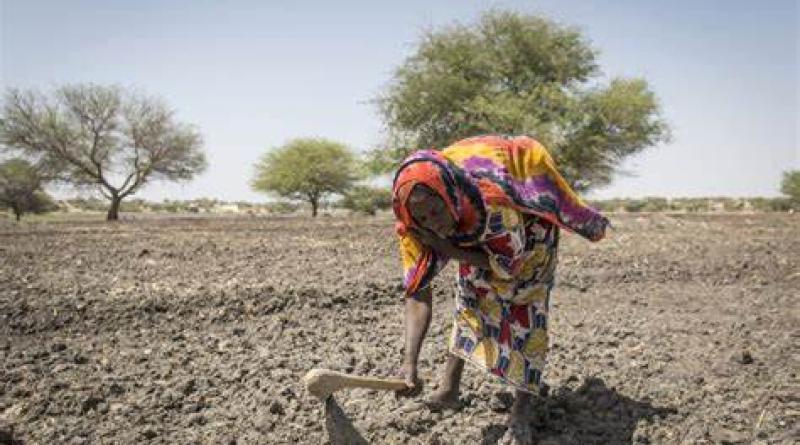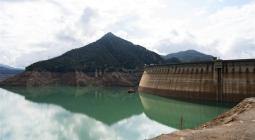A deadly duo: Climate change and conflict are fuelling Nigeria’s food insecurity crisis

An alarming number of Nigerians — approximately 25.3 million — are in danger of acute food insecurity during the next few months, according to a recent report from the United Nations’ Food and Agriculture Organization.
This represents a rise from the 17 million that are currently estimated to be at risk of food insecurity. The report identifies violent conflict, climate change, inflation and rising food prices as the key drivers exacerbating the country’s food security situation.
The 2022 Global Food Security Index — which ranks countries based on food affordability, availability, quality and safety — ranked Nigeria 107 out of 113 countries. This is a notable drop from its previous rank of 97 in 2021.
Two formidable forces have converged to push Nigeria’s food security to the brink: climate change, with its unpredictable weather patterns, and violent conflict.
Nigerian politicians have attested to this dangerous combination. Muhammad Abubakar, Nigeria’s minister of agriculture and rural development, lamented in 2022 that terrorism and floods were hampering the nation’s food security.
Climate change and food insecurity
Nigeria relies heavily on agriculture, with approximately two-thirds of its labour force dependent on farming or herding to make a living. Since both activities rely heavily on weather patterns like rainfall, Nigeria’s agriculture industry is very susceptible to the effects of climate change.
In addition, Nigeria is one of the countries most vulnerable to the effects of climate change and natural hazards. It has experienced a variety of climate disasters, including rising temperatures, gully erosion, drought and increased flooding.
In 2022, Nigeria was hit by devastating floods that killed more than 500 people, displaced more than 1.4 million and destroyed about 90,000 homes. Analysis from the World Weather Attribution group found that climate change was likely responsible for the heavy rains that caused the flooding.
The floods destroyed thousands of hectares of farmland, worsening the already severe food insecurity in the country. Crops were destroyed and the floods cost the agricultural sector about C$2 billion in damages.
In addition, the arid regions of the northwest and northeastern parts of Nigeria are currently facing substantial challenges from drought and land degradation. Both issues have a significant impact on food security, as they result in less water being available for crops.
Violence fuelling food crisis
Compounding the climate change crisis is the rise in violence orchestrated by armed groups like the Boko Haram extremist group.
Violence, armed banditry and kidnappings have affected food access across Nigeria. This violence has affected northern Nigeria in particular, where the bulk of food production occurs and 8.4 million are currently food insecure.
Boko Haram terrorists, bandits and armed herders have forced at least 78,000 farmers to abandon their farmland in Borno, Katsina, Taraba, Plateau and other northern states.
More than 2,000 Benue farmers have been displaced, according to the chairman of the All Farmers Association of Nigeria, disrupting farming activities in the affected regions.
Farmer-herder conflict
The Boko Haram insurgency is also a contributing factor in the farmer-herder conflict in the Middle Belt region, a key crop-producing area of Nigeria.
The insurgency, along with land and water scarcity, has forced nomadic herders from the north to migrate south in search of grazing lands and water for their livestock. As a result, the herders have clashed violently with local farmers over resources.
Although ethnicity and religion play a role in the conflict — many of the herders are Fulani Muslims while the farmers are Christian and from other ethnic groups — climate change is exacerbating it. Increasing temperatures and unpredictable rainfall patterns have intensified the resource competition between the two groups, leading to more disputes.
Herders have allegedly destroyed the crops of farmers and chased some of them off their land.
Over the past eight years, an estimated 6,000 Benue people have been killed and two million farmers have been displaced. The violence has largely disrupted the food supply chains between northern and southern Nigeria, as many roads are too unsafe for farmers to transport their crops.
Addressing the crisis
Nigeria is currently at a crossroads. Without taking immediate action, the number of Nigerians who are food insecure will continue to increase.
More than 5.9 million children in northwest and northeast Nigeria experienced acute malnutrition between May 2022 and April 2023. More than 1.6 million of these children suffered from severe acute malnutrition.
The government has recently made announcements regarding these issues. In May, Bola Tinubu, Nigeria’s president, pledged to implement “best modern practices” to address the conflicts between farmers and herdsmen in the country.
These modern practices include building agricultural hubs to enhance productivity, guaranteeing minimal prices for certain crops and animal products, and creating storage facilities to reduce food waste.
The government should adopt a multi-faceted approach to address the food insecurity crisis. This kind of approach would integrate climate action, modern livestock and farming techniques, and security measures to mitigate the impacts climate change and violent conflict are having on Nigeria’s food insecurity.
cover photo:World Food Program USA




